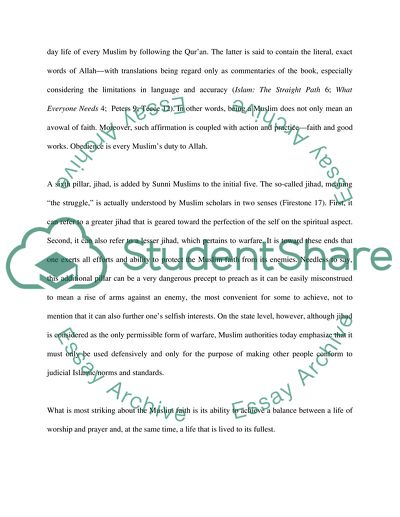Cite this document
(Core of Islamic Beliefs and Practices Book Report/Review, n.d.)
Core of Islamic Beliefs and Practices Book Report/Review. Retrieved from https://studentshare.org/religion-and-theology/1728388-world-religions-islam
Core of Islamic Beliefs and Practices Book Report/Review. Retrieved from https://studentshare.org/religion-and-theology/1728388-world-religions-islam
(Core of Islamic Beliefs and Practices Book Report/Review)
Core of Islamic Beliefs and Practices Book Report/Review. https://studentshare.org/religion-and-theology/1728388-world-religions-islam.
Core of Islamic Beliefs and Practices Book Report/Review. https://studentshare.org/religion-and-theology/1728388-world-religions-islam.
“Core of Islamic Beliefs and Practices Book Report/Review”, n.d. https://studentshare.org/religion-and-theology/1728388-world-religions-islam.


